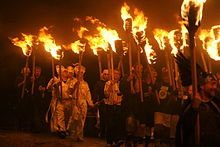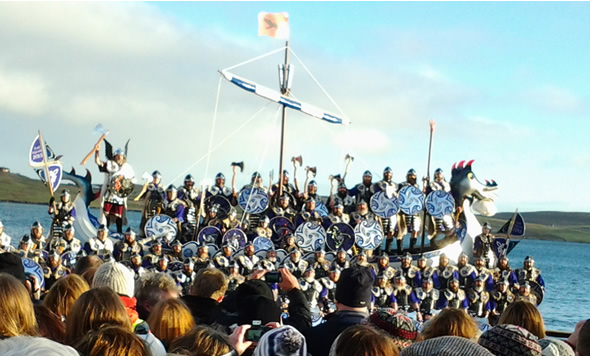
Up Helly Aa Senior Jarl Squad in their galley
There were plenty of people speaking Shetlandic, or at least using some Shetlandic words at the various events I went to yesterday. At a concert in the afternoon the host and the performers were all locals and spoke with Shetlandic accents and used local words for some things. One of them also sang a song in Shetlandic.
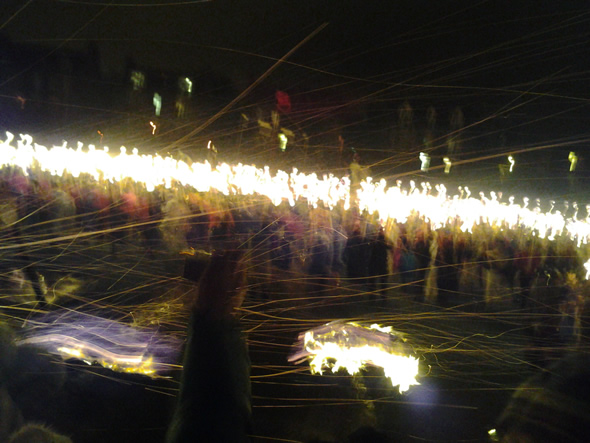
circling the galley
There seems to be a continuum which runs from Scottish English or Scots with a Shetland accent and maybe a few Shetlandic words to broad Shetlandic. The Shetlandic word I’ve heard most often is peerie, which means small.
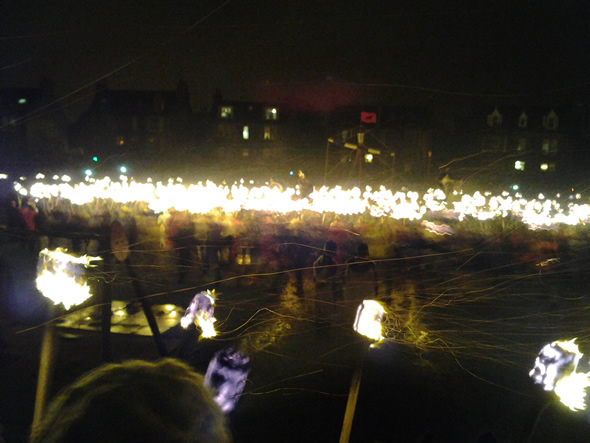
circling the galley
In the evening there was a procession involving hundreds of people holding flaming torches. Some were dressed as Vikings and pulled a replica Viking galley through the streets. At end of the procession they parked the galley in the middle of a field and the torch bearers circled round it. Once they were all there, they sang a few songs then threw their torches onto the galley, which burned brightly.
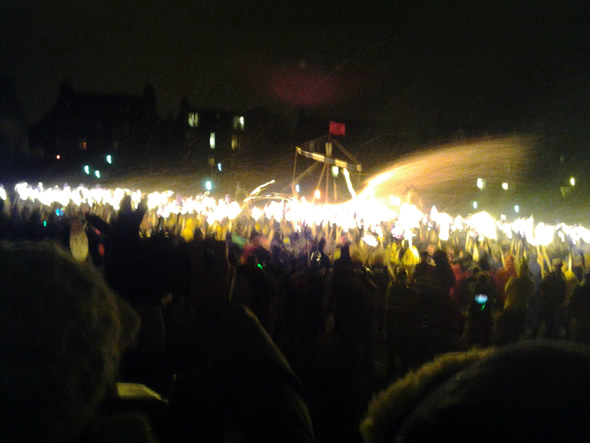
burning of the galley
A bit later there were parties at various places, known as halls, around Lerwick (I was in the hall at the Isleburgh Community Centre). Each of the 47 squads who had taken part in the procession travelled around the halls performing their party pieces. Most of these involved dancing and/or music, plus some comic sketches, mainly in fancy dress, with a lot of men dressed as women. The parties went on until 8am this morning, so I was up for 24 hours – rather longer than normal for me – after which I was rather tired and slept until this afternoon. Others had breakfast and carried on partying today, which is a public holiday here.
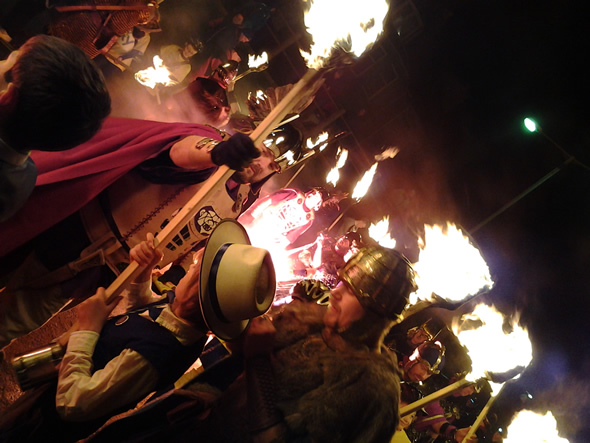
Up Helly Aa Junior Jarl Squad
Many of the squads had Shetlandic names, such as Da Rumbling Stanes, and some did songs in Shetlandic. Here’s an example (to be sung to the tune of Status Quo’s Rockin’ All Over The World):
Guizing Aa ower Da Toon
Up Helly Aa, Up Helly Aa here we go.
Wir haeing a party. Pittin on a show.
Here we go-o.
Guizing aa ower da Toon.
Stevie Grant, Stevie Grant. It’s your day.
Cheer dee up da ranks. Set dee on dee way.
Here we go-o.
Guizing aa ower da Toon.
Fir wir filsket, wir filsket, wir filsket, wir filsket.
Up Helly Aa filskit. Wir aa filsket.
Here we go-o.
Guizing aa ower da Toon.
Some cry fir weemin Jarls. We say no.
Wir gean tae stick wi e da Status Quo.
Here we go-o.
Guizing aa ower da Toon.
Notes
Stevie Grant is the Guizer Jarl (chief viking) this year, so I suppose that guizing is what he does in that role.
Filsket = high-spirited
I took some of the photos using the night scene mode on my Samsung Galaxy web tablet, which is really difficult to hold still, so many of them turned out blurred.





